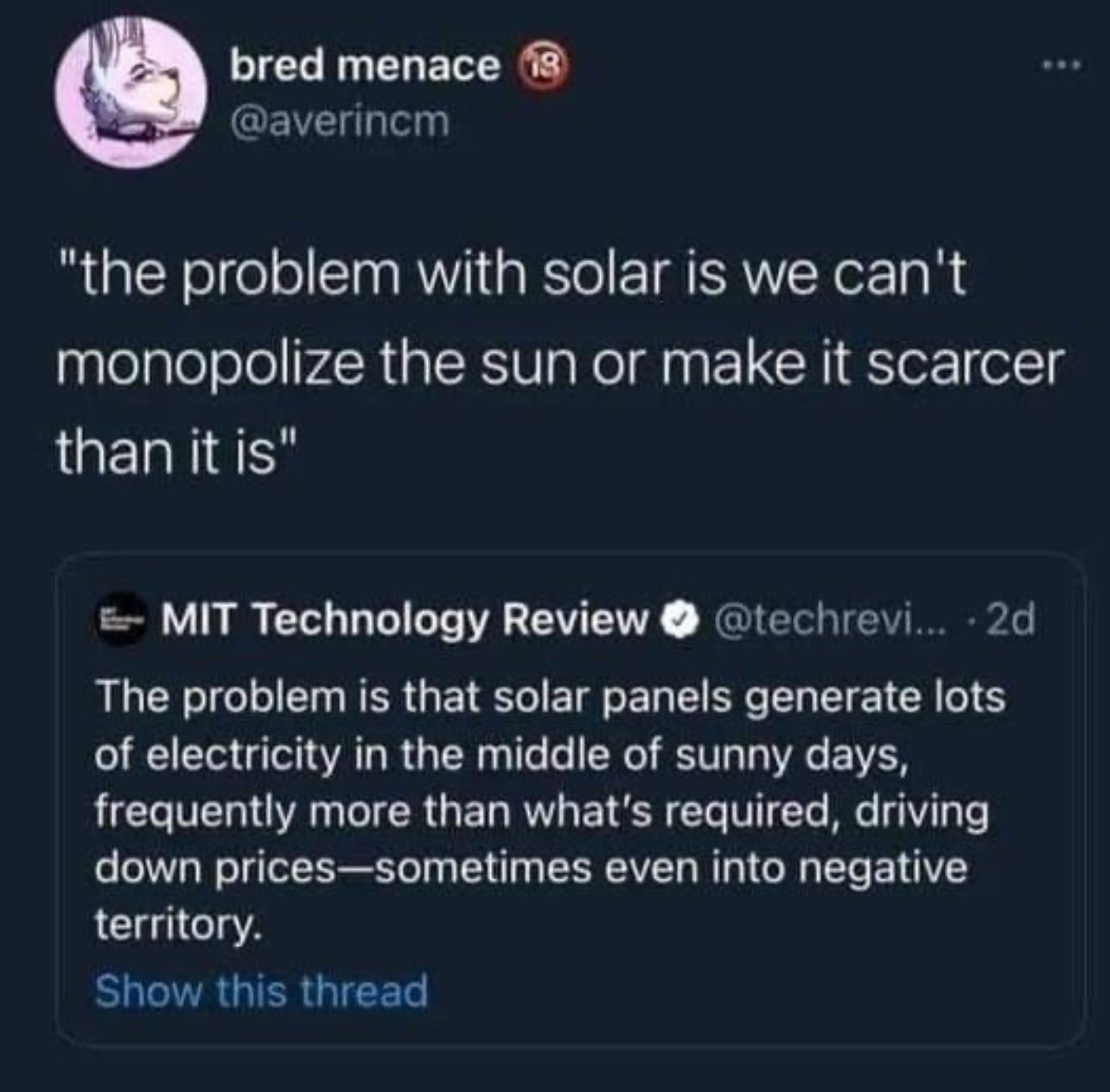this post was submitted on 02 Oct 2024
1686 points (95.6% liked)
Microblog Memes
6193 readers
2775 users here now
A place to share screenshots of Microblog posts, whether from Mastodon, tumblr, ~~Twitter~~ X, KBin, Threads or elsewhere.
Created as an evolution of White People Twitter and other tweet-capture subreddits.
Rules:
- Please put at least one word relevant to the post in the post title.
- Be nice.
- No advertising, brand promotion or guerilla marketing.
- Posters are encouraged to link to the toot or tweet etc in the description of posts.
Related communities:
founded 2 years ago
MODERATORS
you are viewing a single comment's thread
view the rest of the comments
view the rest of the comments

I think a more feasible potential technology for the grid are flow batteries.
They work through some kind of ion-exchange. Where they have two liquids, one charged and one not. By running power through a catalyzer, they move charges into one tank. Then you can apply a load across the catalyzer, and remove the charge as power.
I’m by no means an expert, but these are already pretty popular in Japan, and have started to make their way into the US.
Still definitely an expensive technology, but I’m hopeful that scale and investment can drive the cost down.
One of their biggest advantages over other technologies like Li-Ion is that their duration is independent of their capacity. Because the duration is only determined by the size of your tanks and the amount of liquid you have.
Meaning that you can take an existing 50MW, 4 hour plant and upgrade it to an 8 hour plant by doubling the size of the tanks and filling them up with the electrolyte. All without having to upgrade the catalyzer.
Edit: also worth mentioning they don’t have the same supply/environmental/recyclability concerns that lithium batteries do. I believe the electrolyte is relatively inert and does not degrade over time.